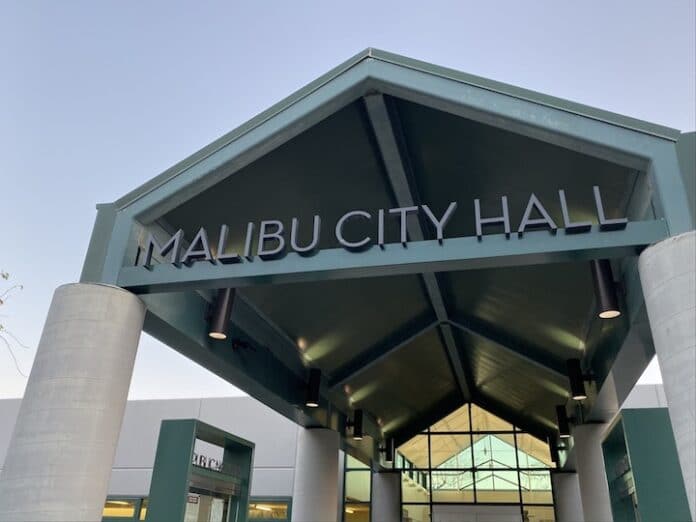Jobs are at a 20-percent vacancy rate at Malibu’s City Hall
It’s not a new problem: employee retention in Malibu for both the private and public sector. Malibu’s more remote location, high cost of living, and frequent canyon or Pacific Coast Highway road closures can be challenging for commuting employees. With City Hall facing a 20 percent employment vacancy, Malibu officials have hired consultants to help find solutions to keeping a workforce.
Employee retention at City Hall is a “very real problem” according to City Manager Steve McClary. However, McClary, who is in touch with other city managers said the problem is also “a struggle for other employers in other cities up and down the state.”
“The big challenge here is the distance to travel,” McClary explained. “The city often loses employees who find a job closer to home with a similar salary. It’s a difficult job market right now. The time and money it costs to travel back and forth to Malibu will always be a factor for attracting employees whether for the city, private businesses or the school district.”
While acknowledging the problem, McClary was unable to provide data on any turnover rate, but did say, “On our overall work force, it seems like we’re seeing more frequent turnover.” Job vacancies are spread across all departments at City Hall currently.
“Hardest hit right now are our planning, administration, and finance departments,” McClary said. “We’re trying to get all the positions filled as fast as we can, however we obviously made a priority to bring in additional contract planners because we felt that was an urgent need.”
The Planning Department is still short as contract consultants are filling in for permanent positions.
McClary receives feedback from Malibu residents who are concerned their emails and phone calls are not returned fast enough. Even City Councilmember Steve Uhring has expressed frustration in not receiving reply emails from city staff.
“These are legitimate concerns that we’re working to correct,” McClary stated. “Most of the complaints we get are related to projects in the planning department, and building and safety, related to development concerns.”
In November, the City Council approved an $81,000 study with a consulting firm to address employee retention. That study should be complete in roughly six months.
“From my understanding it’s been over 20 years since that’s been done,” McClary said. “When we get that back it’s going to tell us exactly how we are positioned in terms of our compensation and benefits compared to who we’re competing with in the labor market.”
“We’ve got a compensation study going on but that won’t be done for 38 weeks,” Uhring said, expressing disappointment that the subcommittee he was on to contribute to the employment study was disbanded.
Along with the study, the city is also drafting a pilot program for a teleworking policy.
“We know from the industry that employers who include a remote work option are currently attracting seven times more job applicants,” McClary said. “We’re hoping that by implementing a remote work policy, that will take some of the strain off the employees and make it a more attractive place to be.”
McClary also said the city is taking steps to modernize its software and IT systems that will make work more efficient at City Hall.
“Nothing can be done without staff,” he said. “We need the people to get the work done. It’s absolutely essential to any mission or project we’re trying to accomplish for the community of Malibu. So, it’s really important to get out in front of this problem. We really need to find a way to attract good people and when we get good people we want to be able to keep those people because we lose their experience when they walk out the door. It takes a couple of years to get new employees up to the speed of where the last employee was.
“It’s a very complex work environment in Malibu. We ask for everyone’s patience as we work through this.”
Acknowledging employee retention has been an issue in Malibu for a long time. Uhring suggested somethings he thinks might be an enticement to some workers, including offering higher education opportunities, discounts at local restaurants, and even car washes.
“I’m trying to make employees feel good,” he said. “Make Malibu an attractive place for them to work. What do we have here in Malibu that is unique enough that we can use to make employees want to come here? We’re going to have to get creative.”

